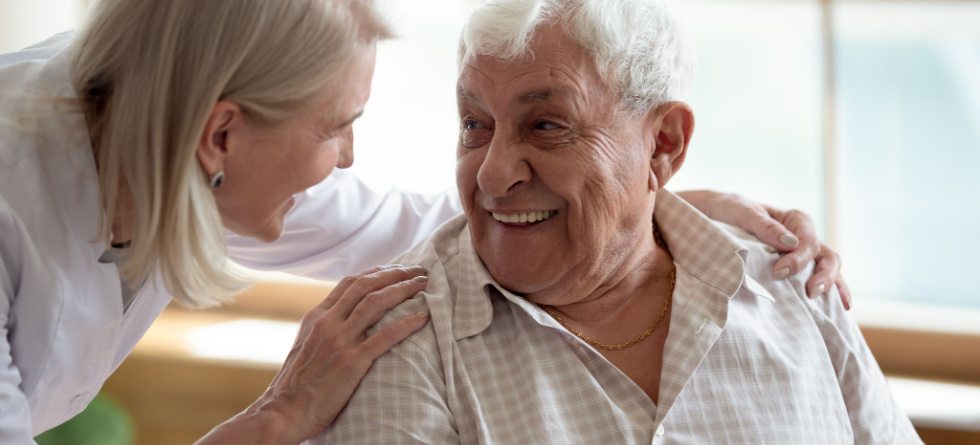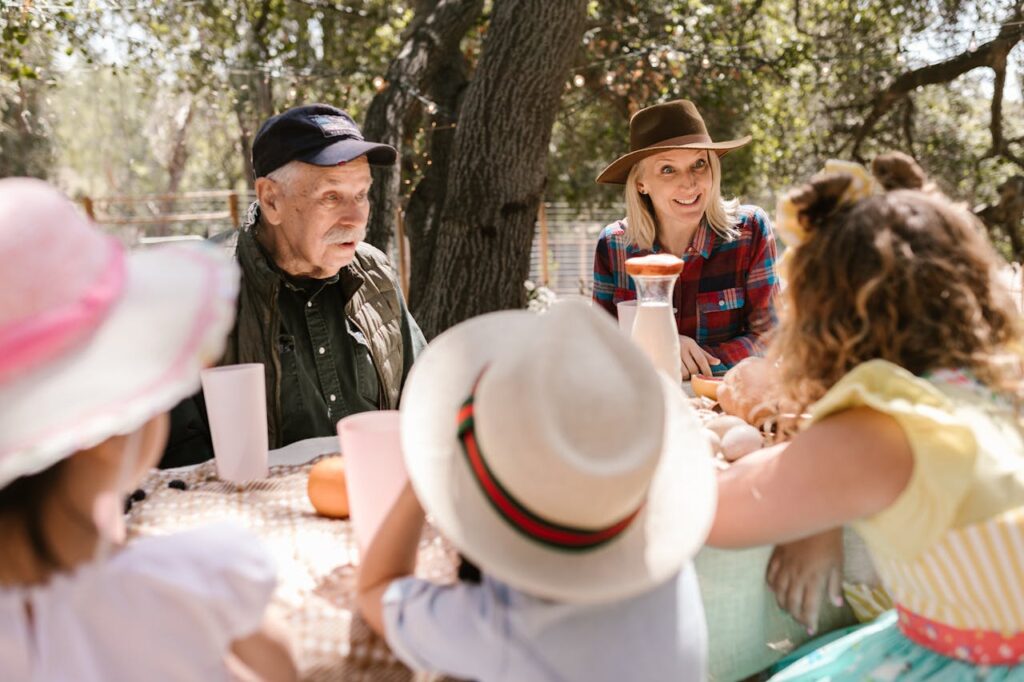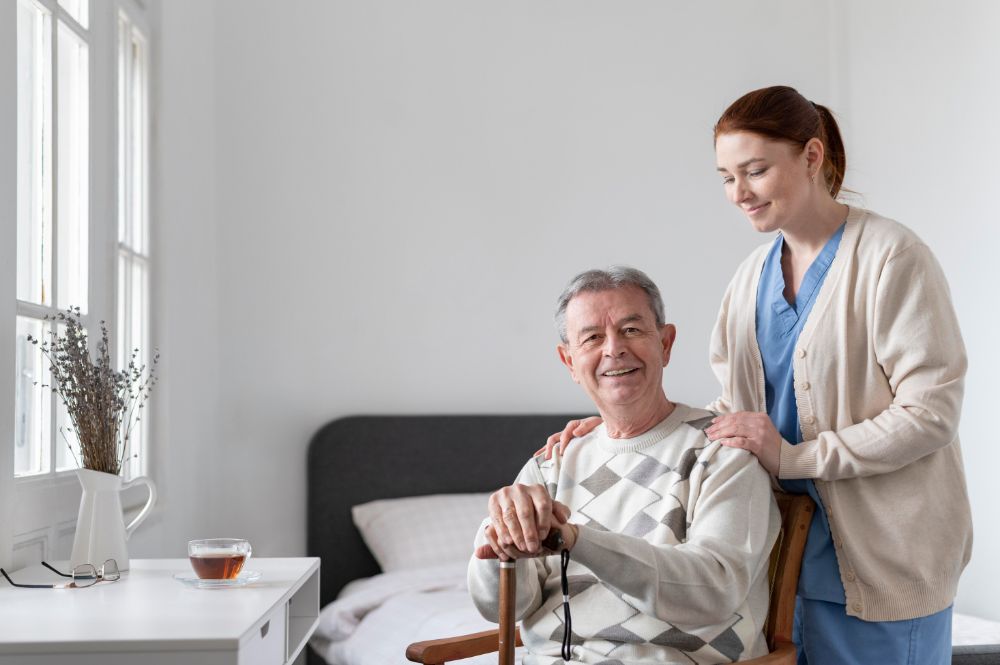Comfort, the Physical Kind – Providing Physical Support for Loved Ones
At Devoted Helpers in Sugar Land, Texas, we recognize that physical comfort plays an essential role in the well-being of those receiving care, especially for individuals with aging-related challenges, chronic illnesses, or those recovering from surgery or injuries. Comfort is not only about making sure someone is pain-free but also ensuring they feel safe, relaxed, and supported in their environment. Either a person is recovering from surgery, dealing with chronic pain, or simply needs assistance with mobility, physical comfort is a key factor in their overall quality of life.
In this article, we’ll explore what physical comfort entails, why it’s important, and how caregivers can provide physical comfort to those in need.
What is Physical Comfort?
Physical comfort refers to the measures taken to ensure that an individual’s physical needs are met in a way that promotes their well-being and peace of mind. This includes addressing pain, providing assistance with daily tasks, and creating a safe and supportive environment. It involves actions that reduce discomfort, promote relaxation, and ensure the person feels secure and cared for physically.
Why is Physical Comfort Important?
-
Relieves Pain and Discomfort – For individuals recovering from surgery, living with a chronic condition, or aging, physical discomfort and pain can be significant obstacles to daily life. Providing physical comfort helps alleviate pain and creates a sense of relief. This can make it easier for individuals to focus on their recovery or enjoy their day-to-day activities.
-
Promotes Better Sleep – Pain and discomfort often interfere with sleep. By addressing physical needs, caregivers can help create a more comfortable environment that supports better rest. Rest is essential for healing, mental well-being, and overall physical health.
-
Improves Mobility – For individuals with limited mobility, physical comfort often involves assisting with moving from one place to another. Proper body positioning, assistance with walking, or support with transfers can prevent strain and enhance comfort.
-
Enhances Emotional Well-being – Physical comfort not only impacts physical health but also affects emotional health. When someone feels physically comfortable and supported, they are less likely to feel anxious, frustrated, or depressed, all of which can negatively impact their recovery and quality of life.
-
Promotes Independence – By offering the right physical support, caregivers can help individuals maintain their independence for as long as possible. Whether that’s helping with basic mobility or providing assistance with daily tasks, caregivers can empower individuals to remain as independent as possible, which enhances their overall sense of dignity and self-worth.
How to Provide Physical Comfort: Tips for Caregivers
Providing physical comfort requires attentiveness, care, and knowledge of an individual’s specific needs. Here are some ways to offer physical comfort effectively…
-
Assist with Pain Management Many individuals experience chronic pain, especially in conditions like arthritis, fibromyalgia, or following surgery. Comforting someone physically often involves helping them manage their pain. Some ways to assist with pain relief include…
- Administering prescribed medication – Ensuring that medications are taken as directed to manage pain.
- Using heat or cold therapy – Applying heating pads or ice packs to reduce inflammation and soothe sore muscles or joints.
- Gentle massage – Light, soothing massages can alleviate tension and promote relaxation.
-
Help with Mobility and Movement For those with limited mobility, helping them move safely and comfortably is a key aspect of physical care. This includes assisting with…
- Transferring from bed to chair or wheelchair – Supporting proper techniques to reduce strain and discomfort when moving.
- Walking assistance – Offering steady support while walking, whether using a walker, cane, or without any devices.
- Positioning – Ensuring that individuals are properly positioned while lying or sitting to prevent discomfort or pressure sores.
Tip – Regular changes in position can prevent bedsores and reduce stiffness in muscles and joints.
-
Ensure Comfortable Living Environments A comfortable living space is essential for physical comfort. As a caregiver, making the environment as safe and cozy as possible can improve the individual’s overall comfort. Some things to consider include…
- Temperature control – Ensure the room is neither too hot nor too cold. Adjust the thermostat to the individual’s preference.
- Soft bedding and cushions – Comfortable bedding and pillows can reduce discomfort, especially for those who spend a lot of time in bed.
- Safe surroundings – Remove any tripping hazards and ensure the home is well-lit to prevent falls.
-
Provide Assistance with Personal Care Personal care tasks can become difficult for those with mobility or health challenges. Providing help with activities like bathing, dressing, or grooming ensures the individual feels clean, refreshed, and comfortable. This assistance also promotes dignity and helps individuals feel good about themselves.
- Bathing assistance – Ensure that the individual feels secure and comfortable by providing proper support during bathing, whether in the shower or bath.
- Grooming and dressing – Assist with getting dressed, and ensure clothes are soft, comfortable, and easy to put on or remove.
Tip – Always respect the individual’s preferences and privacy when assisting with personal care.
-
Promote Good Posture Proper posture is essential for comfort, especially for those who may be bedridden or in a wheelchair for extended periods. When an individual is sitting or lying down for long stretches, it’s important to provide…
- Proper alignment – Ensure that their back, head, and neck are properly aligned to reduce strain.
- Supportive pillows or cushions – Use cushions to help maintain comfortable posture while sitting or reclining.
-
Assist with Eating and Hydration Maintaining a nutritious diet and staying hydrated are essential for overall health and well-being. For those with limited mobility or chronic conditions, assisting with meals and ensuring they are eating and drinking enough can greatly improve their comfort levels. You may need to help with…
- Preparing meals – Offering food that is easy to eat and pleasant to the individual’s tastes.
- Assisting with feeding – Helping with eating if the person has difficulty using utensils or chewing.
- Encouraging hydration – Offering drinks throughout the day to ensure the individual remains hydrated, which helps with overall comfort.
-
Encourage Relaxation Helping someone relax is a crucial part of physical comfort. Encourage activities that promote calmness and reduce tension…
- Gentle music – Play soothing music to create a peaceful atmosphere.
- Aromatherapy – Use calming scents like lavender or chamomile to promote relaxation.
- Breathing exercises – Teach simple deep-breathing exercises to reduce stress and anxiety.
-
Assist with Mobility Devices If the person is using a mobility device such as a walker, cane, or wheelchair, ensure that the device is properly adjusted for their comfort. A caregiver can assist with…
- Ensuring the device is stable and functional.
- Helping with the proper use of mobility aids to avoid falls or discomfort.
- Offering support during transitions between sitting, standing, and walking.
How Devoted Helpers Can Assist with Physical Comfort
At Devoted Helpers, we pride ourselves on offering comprehensive care that addresses both the physical and emotional needs of our clients. Our trained caregivers provide physical comfort by offering assistance with…
- Personal Care – Bathing, dressing, grooming, and maintaining hygiene.
- Mobility Support – Safe transfers, walking assistance, and mobility device management.
- Pain Management – Gentle massage, heat/cold therapy, and assistance with medication.
- Daily Living Assistance – Meal preparation, hydration encouragement, and other day-to-day support.
Physical comfort is a critical part of caregiving that helps improve the overall well-being of individuals facing illness, aging, or mobility challenges. At Devoted Helpers in Sugar Land, Texas, we are dedicated to providing physical comfort through thoughtful assistance with mobility, personal care, pain management, and creating a supportive living environment.
If you or a loved one needs help with physical comfort and care, reach out to Devoted Helpers for the compassionate, personalized support you deserve.


